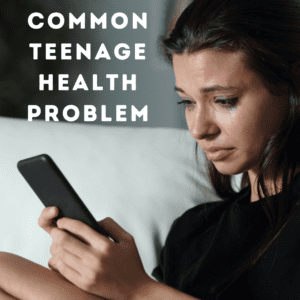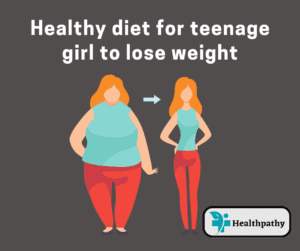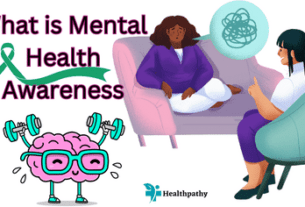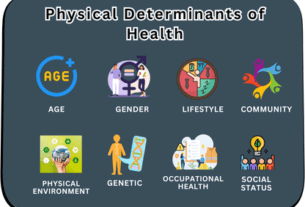Depression in Teenage girls

It is a mental health disorder characterized by persistent feelings of sadness, loss of interest in activities, and a general lack of pleasure or motivation. It goes beyond the normal ups and downs experienced in life and can significantly impact a person’s ability to function in daily life. The prevalence of depression in teenage girls is a serious concern, and studies have shown that teenage girls are more likely to experience depression compared to teenage boys. The hormonal changes during adolescence, coupled with social and academic pressures, can contribute to this higher prevalence.
Addressing teenage depression is crucial because it can have long-term effects on a girl’s emotional, social, and academic development. If left untreated, depression can lead to problems in adulthood and increase the risk of other mental health issues.
Causes of Depression in Teenage Girls:
Biological factors:
- Hormonal changes: The hormonal fluctuations during puberty can influence mood and emotions in teenage girls, making them more susceptible to depression.
- Genetic predisposition: A family history of depression can increase the likelihood of a girl developing the condition.
- Neurochemical imbalances: Imbalances in neurotransmitters, such as serotonin and dopamine, play a role in depression.
Environmental factors:
- Academic pressure: High expectations, academic stress, and performance anxiety can contribute to feelings of inadequacy and depression.
- Peer pressure and social media: Teenage girls may feel pressure to conform to societal standards and compare themselves to others on social media, leading to low self-esteem and depression.
- Family dynamics and conflicts: Turmoil within the family, such as parental divorce or conflicts, can negatively impact a girl’s mental well-being.
- Traumatic experiences: Exposure to trauma, abuse, or significant loss can trigger depression in vulnerable individuals.
Psychological factors:
- Low self-esteem: Negative self-perception and feelings of worthlessness can contribute to depression.
- Negative thought patterns: Persistent negative thoughts and rumination can exacerbate depressive symptoms.
- Body image issues: Cultural pressures related to appearance can lead to body dissatisfaction and depression in teenage girls.
Signs and Symptoms of Depression in Teenage Girls:
Emotional signs:
- Persistent sadness: Feeling sad most of the day, nearly every day, for an extended period.
- Irritability or anger: Unexplained irritability or outbursts of anger that are disproportionate to the situation.
- Emotional numbness: Feeling emotionally detached or experiencing a lack of emotions.
- Feelings of hopelessness and helplessness: A pervasive sense of despair and a belief that things will never get better.
Behavioral signs:
- Social withdrawal and isolation: Avoiding social interactions and withdrawing from friends and family.
- Changes in sleeping and eating habits: Significant changes in appetite or sleep patterns, either increased or decreased.
- Decreased interest in hobbies or activities: Loss of interest in activities that were once enjoyable.
- Self-harm or reckless behavior: Engaging in self-destructive behaviors as a coping mechanism.
Physical signs:
- Fatigue and lack of energy: Feeling constantly tired or lacking the motivation to engage in daily activities.
- Frequent headaches or stomachaches: Physical complaints without any underlying medical cause.
- Significant changes in weight: Rapid weight gain or loss due to changes in eating habits.
The Role of Parents and Guardians
- Communication and openness: Parents should create an open and non-judgmental environment where their teenage daughters feel comfortable expressing their feelings.
- Recognizing the signs of depression: It is essential for parents to be aware of the signs of depression so they can identify the issue early and seek appropriate help.
- Seeking professional help: If parents suspect their teenage daughter is experiencing depression, it is crucial to consult a mental health professional for a comprehensive evaluation and treatment plan.
- Providing a supportive environment: Parents can provide emotional support and encouragement, reinforcing that seeking help for mental health issues is a sign of strength, not weakness.
The Role of Schools and Educators:
- Raising awareness about teenage depression: Schools can conduct awareness campaigns and workshops to educate students, teachers, and parents about the signs and effects of depression.
- Implementing mental health programs: Schools can integrate mental health programs into their curriculum to promote emotional well-being and teach coping skills.
- Training teachers to identify and support students with depression: Providing training to teachers on recognizing signs of depression can facilitate early intervention and support.
- Creating a positive and inclusive school atmosphere: Schools should foster a supportive and inclusive environment that encourages open discussions about mental health.
Seeking Professional Help:
The importance of mental health professionals: Trained mental health professionals, such as psychologists and psychiatrists, play a crucial role in assessing and treating teenage depression.
Types of therapy for teenage depression:
- Cognitive Behavioral Therapy (CBT): Helps teens identify and change negative thought patterns and behaviors.
- Dialectical Behavior Therapy (DBT): Focuses on emotional regulation and coping skills.
- Interpersonal Therapy (IPT): Addresses relationship issues and social challenges that contribute to depression.
Medication and its role in treatment: In some cases, medication may be prescribed to help manage depression symptoms, especially when combined with therapy.
Combining therapy and medication: The most effective approach often involves a combination of therapy and medication to address the multiple aspects of depression.
Coping Strategies for Teenage Girls with Depression:
- Engaging in physical activities and exercise: Regular physical activity has been shown to improve mood and reduce symptoms of depression.
- Practicing mindfulness and relaxation techniques: Techniques like meditation and deep breathing can help reduce stress and promote emotional well-being.
- Building a strong support network of friends and family: Having a supportive network of individuals who can offer emotional support can be beneficial for teenagers with depression.
- Expressing emotions through creative outlets: Engaging in creative activities, such as art, writing, or music, can be a constructive way to process emotions.
- Challenging negative thought patterns: Encouraging positive self-talk and challenging negative thoughts can help improve a girl’s outlook.
- Avoiding substance abuse and risky behaviors: Teenagers may turn to substance abuse as a way to cope with depression, but this can worsen the condition and lead to further problems.
Addressing Teenage Suicide Risk
- Recognizing warning signs of suicidal ideation: Knowing the signs of suicide risk, such as talking about suicide or expressing hopelessness, is essential for early intervention.
- Taking all suicide threats seriously: Any mention of suicide or self-harm should be taken seriously, and immediate help should be sought.
- Initiating immediate intervention and support: If a teenager is at risk of suicide, it is crucial to seek help from a mental health professional or crisis hotline.
- The role of crisis hotlines and helplines: Crisis hotlines provide immediate support and intervention for individuals experiencing suicidal thoughts.
Overcoming the Stigma Surrounding Depression:
- Reducing stigma through education: Educating society about depression and mental health can help dispel myths and misconceptions.
- Promoting open discussions about mental health: Encouraging open discussions about mental health can help reduce shame and encourage seeking help.
- Encouraging empathy and compassion: Building empathy and understanding can create a more supportive and compassionate environment for those experiencing depression.
Conclusion:
Early identification and treatment of depression can lead to better outcomes and reduce the long-term impact on a teenager’s life. With appropriate support and treatment, many teenage girls can recover from depression and build resilience. Society plays a vital role in reducing the stigma around depression and providing a supportive environment for teenagers struggling with their mental health.
Related Articles:



Follow us:





